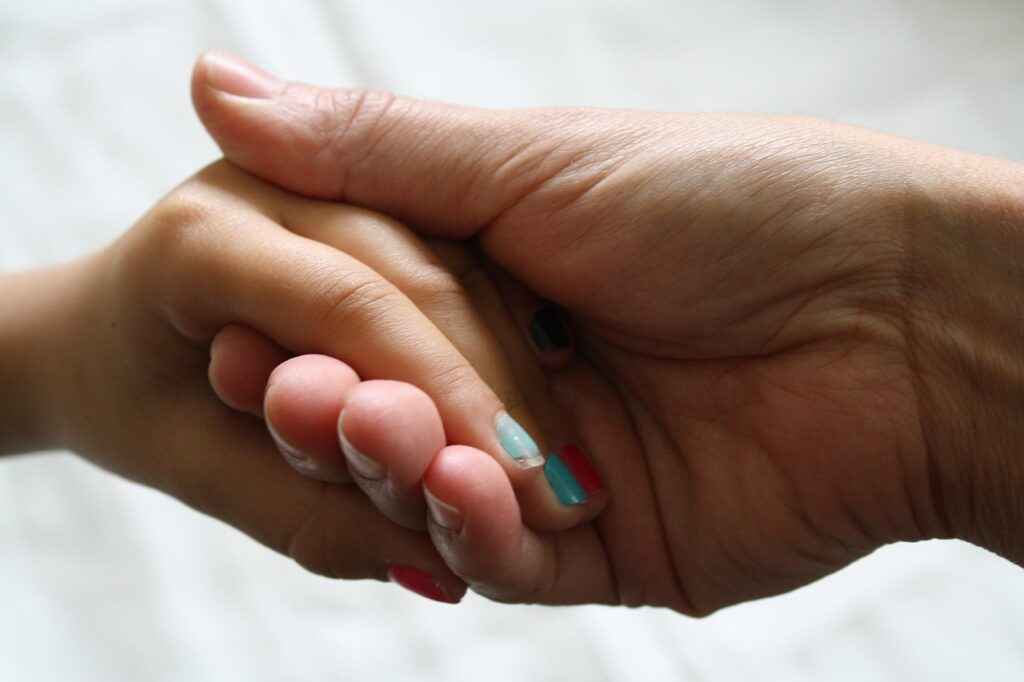
On Sunday, June 1, 2025, we will be celebrating International Children’s Day. I see this day as an opportunity for us to reflect on family life and to start building or continuing to strengthen a Biblical perspective on family life. While we do this, let us not forget all barren women in our society who day and night desire that God may bless them with a child. This article is aimed at building a Biblical perspective on barrenness and encouraging all women who can’t conceive. You might not be barren, but you know a family member or friend who is going through the same. Therefore, this article will help you understand what your family member or friend is going through and equip you to encourage them.

A Biblical Background on Barrenness
You shall serve the Lord your God, and he will bless your bread and your water, and I will take sickness away from among you. None shall miscarry or be barren in your land; I will fulfill the number of your days (Ex 23:25–26).
The Definition
Barrenness is a term used to describe a woman who is unable to give birth to children, and it was considered a curse from God (Holman Illustrated Bible Dictionary). It refers to various forms of unfruitfulness in the ability to bear children (Genesis 11:30), as well as the production capabilities of plants and livestock (Deuteronomy 7:14), and the fertility of the land. When man sinned against God in Genesis 3 (the Fall of Man), God cursed the woman with the multiplication of pain during childbearing (Gen. 3:16). The land was also cursed with infertility in such a way that man was going to eat of its fruit in sweat and pain because of thorns and thistles that arose as a result of the curse (Gen. 3:17-19).
Barrenness, like many other challenges in life, came as a consequence of man’s sin, of which we suffer because we are all descended from one man, Adam. Fertility, as opposed to barrenness, was God’s original plan when he created mankind.

And God blessed them. And God said to them, “Be fruitful and multiply and fill the earth and subdue it, and have dominion over the fish of the sea and over the birds of the heavens and over every living thing that moves on the earth (Genesis 1:28).”
WOMEN AND BARRENNESS
Sarah
We must not underestimate the psychological torture that barren women go through, as it is reflected in the life of Sarai, Abram’s wife, who had borne him no children, that she had to consider Hagar, her Egyptian maidservant, as an option to bear children for her on her behalf (Genesis 16:1-3). The Bible explains that after Hagar conceived, she began to despise Sarai (v. 4). Sarai was paying the consequences of her desperate decision even after God’s covenant with Abram (Genesis 15). Hagar bore Abram a son whom Abram named Ishmael (Gen. 16:15), but Sarai was still barren.
The turnaround for Sarai comes in Genesis 17:5,15-16 when God changed the name of Abram to Abraham, Sarai to Sarah. God promised to bless Sarah and that she was going to be promoted from being a barren woman to being a mother of nations, and that kings of peoples shall be from her. Sarah was ninety years old when this promise arrived, and Abram laughed and Sarah also laughed within themselves. God posed an interesting question to Abraham and Sarah: “Is anything too hard for the LORD?” – Genesis 18:14.
God, who never fails in His promises, visited Sarah and did for her as He had spoken. Sarah conceived and bore Abraham a son in his old age, at the proper time the LORD Himself had set for this to happen. Abraham named his son Isaac, and Sarah was very joyful and said that “Who would have said to my husband (Abraham) that your wife (Sarah) would nurse children? For I have borne him a son in his old age.”
Leah and Rachel
Later on, Jacob, the grandson of Abraham, married two wives, and both Leah and Rachel struggled with barrenness. It was a polygamous marriage context in which two sisters were married to one husband. I will be writing an article soon on the biblical view on polygamy; therefore, register, subscribe, and follow “The Ephesians Family” on social media (Facebook, Instagram, X, LinkedIn).
As in the case of many polygamous marriages, Jacob loved Rachel more than Leah, and when God saw that Leah was hated, He opened her womb, but Rachel remained barren (Gen. 29:31). Leah bore 4 children for Jacob: Reuben, Simeon, Levi, and Judah. Her sister, Rachel, envied her so much that she told Jacob to give her children or else she was going to die (Gen. 30:1). Jacob was angry with his wife and reminded her that he was not in the place of God, who had withheld from her the fruit of the womb (Gen. 30:2). Rachel had to commit the same error of Sarai by giving her servant Bilhah to Jacob so that she can have children through her (v. 3). Bilhah conceived and bore Jacob two sons, Dan and Naphtali. When Leah saw that she had ceased bearing children, she also took her servant Zilpah and gave her to Jacob as a wife (Gen. 30:9). Zilpah bore Jacob two sons, Gad and Asher. Later on, Leah conceived again and bore Jacob, Issachar, Zebulun, and Dinah. God remembered Rachel and opened her womb, conceived and bore a son whom she named Joseph (Gen. 30:24). At a later time, Rachel went into labor, and she had hard labor (See Gen. 3:16). She managed to bear a son for Jacob, Benjamin. Rachel didn’t survive the hard labor but died and was buried on the way to Bethlehem (Gen. 35:16-20).
Now, here is what I don’t want you to miss about these two sisters in marriage, Leah and Rachel. When Leah conceived, she called her firstborn, Reuben, saying, “Because the LORD has looked upon my affliction; for now, my husband will love me.” When she bore the second son, she said, “Because the LORD has heard that I am hated…” and with the third one, she said that “Now this time my husband will be attached to me, because I have borne him three sons (Gen. 29:34).” When Leah’s servant Zilpah bore Asher, Leah said that “Happy am I! For women have called me happy (Gen. 30:13).” When Leab bore Jacob a sixth son, she named him Zebulun, saying, “God has endowed me with a good endowment; now my husband will honor me, because I have borne him six sons (Gen. 30:20).” With Rachel, it was the same thing. When Rachel’s servant Bilhah gave birth to Naphtali, Rachel said that “With mighty wrestlings I have wrestled with my sister and have prevailed (Gen. 30:8).”
This is a glimpse of how women feel about barrenness or infertility in marriage. I believe that this is a common experience for most women in marriage who are facing infertility, though women, based on their culture and background, might respond differently. It is a mixture of feelings of affliction, fear of being unloved, hated, and not honored by their husbands, losing attachment to their husbands, and humiliation from society. For those in a polygamous marriage like Rachel, barrenness creates an environment of competition for one husband and always being a rival of your competitor.
Hannah
Hannah, the mother of Prophet Samuel in the Bible, was in a polygamous marriage. Her husband’s name was Elkanah, and Peninah was the name of his other wife. Peninah had children, but Hannah was barren. The author of the book of Samuel recognizes that “the LORD had closed Hannah’s womb” (1 Samuel 1:5). This repeated biblical view on barrenness is important.
A Supportive Husband

Elkanah is an example of a husband who is supportive of his wife even in the midst of a challenge like barrenness. The Bible narrates that Elkanah loved Hannah so much that in his yearly visits to Shiloh to worship and sacrifice to the LORD, at the time of sacrifice, he would give portions to Peninnah, his wife, and to all her sons and daughters. But to Hannah, he would give a double portion. Hannah’s rival, Peninnah, used to provoke her severely, to make her miserable because of her barrenness. This used to happen year after year as they went up to the house of the LORD, and Hannah could weep and not even manage to eat.
Overcoming Self-Pity in Barrenness

What do you do when your soul is bitter because of barrenness?
Instead of living in self-pity, year after year, Hannah arose, reminding herself that there is a God in heaven who answers prayer. There will be always days in your life when you have to learn not to live in self-pity because of your situation and what people are thinking or saying to you. Just like Hannah, you need to learn to find encouragment and hope only in Christ.

African Women Vs Barrenness
I live in Africa, which is not a favorable environment for barren women in marriage. I don’t see a bigger difference between the African cultural background in comparison to the Hebrew or Jewish culture. Children in Africa, especially sons, carry the family name forward, and not having a child is not taken lightly. Apart from carrying the family name, children inherit the property of their parents when they die, and children are a retirement pension or plan for African parents. If you are single in Africa, you are not respected. When you marry, you are considered, but when you have children, you are greatly respected and given a new title: father of “child’s name’ or mother of “child’s name,” or parents of “child’s name.” Children in Africa are a means of gaining honor and respect in society. So, where do we place a barren married woman in this context of society?
An African woman who is married but not able to conceive and understands this cultural context before her, goes through serious psychological torture in her mind. Many women tend to come up with quick, attempted solutions, just like these examples of biblical women we saw above. Truly, barrenness is a real burden, especially for a couple that recently entered into marriage with lots of expectations and dreams. So, what is the way out?
Where is the Way of Escape?
No temptation has overtaken you that is not common to man. God is faithful, and he will not let you be tempted beyond your ability, but with the temptation he will also provide the way of escape, that you may be able to endure it (1 Corinthians 10:13).

In our African context, some barren women who even carry the name of Christianity chose to hide and seek help from a witch doctor. Other women, in the wickedness of their hearts, chose to steal babies from other mothers in the hospitals, which is very sad. Barrenness for some marriages raises questions of who is the guilty party, the man or the woman? Other couples, like some biblical examples we have seen, opt to have sexual relations outside marriage to see if they can bear children. Others are in polygamy today because the first wife they married couldn’t conceive, and now they commit sin by marrying a second wife who can conceive.
"I am the Way, the Truth, and the LIfe" John 14:6
1. Develop a Biblical View of Barrenness
No woman under the sun invented barrenness or desires to experience it. It is a consequence of sin and is beyond human control. To overcome the challenge of barrenness in marriage and family life, we must adopt a biblical view on this subject. Sarah said, “See now, the LORD has restrained me from bearing children” (Gen. 16:2). Isaac prayed to the Lord for his wife, because she was barren. And the Lord granted his prayer, and Rebekah his wife conceived (Gen. 25:21).” Jacob said to Rachel, “Am I in the place of God, who has withheld from you the fruit of the womb?” (Gen. 30:2). When Job lost all his children in death, he said, “Naked I came from my mother’s womb, and naked shall I return there. The LORD gave, and the LORD has taken away; Blessed be the name of the LORD.” (Job 1:21). Solomon in Psalm 127:3 said, “Behold, children are a heritage from the LORD, the fruit of the womb is a reward.”
These are a few examples of men and women who walked with a biblical view on barrenness and fruitfulness, and God today is calling you to have the same view.
2. Trust in God
Temptations or challenges in life tend to push some people far away from God, and they go hunting for solutions that don’t glorify God. Barrenness is one of those challenges that has pushed many far away from the presence of God. On the contrary, we see with the biblical examples above that barrenness led various men and women to kneel before God in prayer, or in short, drew them closer to God. This happened because they had a biblical view of what they were going through, and they understood that only God was the answer to whatever they were going through. And in all the examples above, God responded positively to all those who sought him with all their hearts (See Jeremiah 29:13). Let barrenness draw you near to God and help you to pour out your heart before the LORD as Hannah did (1 Samuel 1 & 2).
3. Being Positive
In 1 Corinthians 7:25-38, Apostle Paul encourages the unmarried and widows, stating that due to the distress of our times, he believes single men, widowers, and widows should remain single. He who is single cares about the things of the LORD – how he may please the LORD. But he who is married cares about so many issues of family life – how he may please his wife and take care of the children. Children need so much uncompromised attention, and at many times it is difficult to serve the LORD with a certain level of commitment. When you have no kids, you and your marriage partner have an opportunity, as Paul mentions, to serve the LORD without distraction (1 Cor. 7:35). Who knows, maybe children will come as a reward for your faithfulness?
4. Seek Counsel and Prayer
The Bible says that “Without counsel plans fail, but with many advisers they succeed (Proverbs 15:22). At the same time, Psalm 1 warns that “Blessed is the man who walks not in the counsel of the wicked.” Seek counsel and be careful to seek biblical counsel to gain a biblical perspective. Talk to your pastor, seek professional Christian counselors, talk to a Christian couples that are experiencing the same situation and are overcoming. Avoid solutions that do not honor God and your marriage.
Share this:
- Click to share on Facebook (Opens in new window) Facebook
- Click to share on X (Opens in new window) X
- Click to email a link to a friend (Opens in new window) Email
- Click to share on LinkedIn (Opens in new window) LinkedIn
- Click to share on Threads (Opens in new window) Threads
- Click to share on WhatsApp (Opens in new window) WhatsApp
